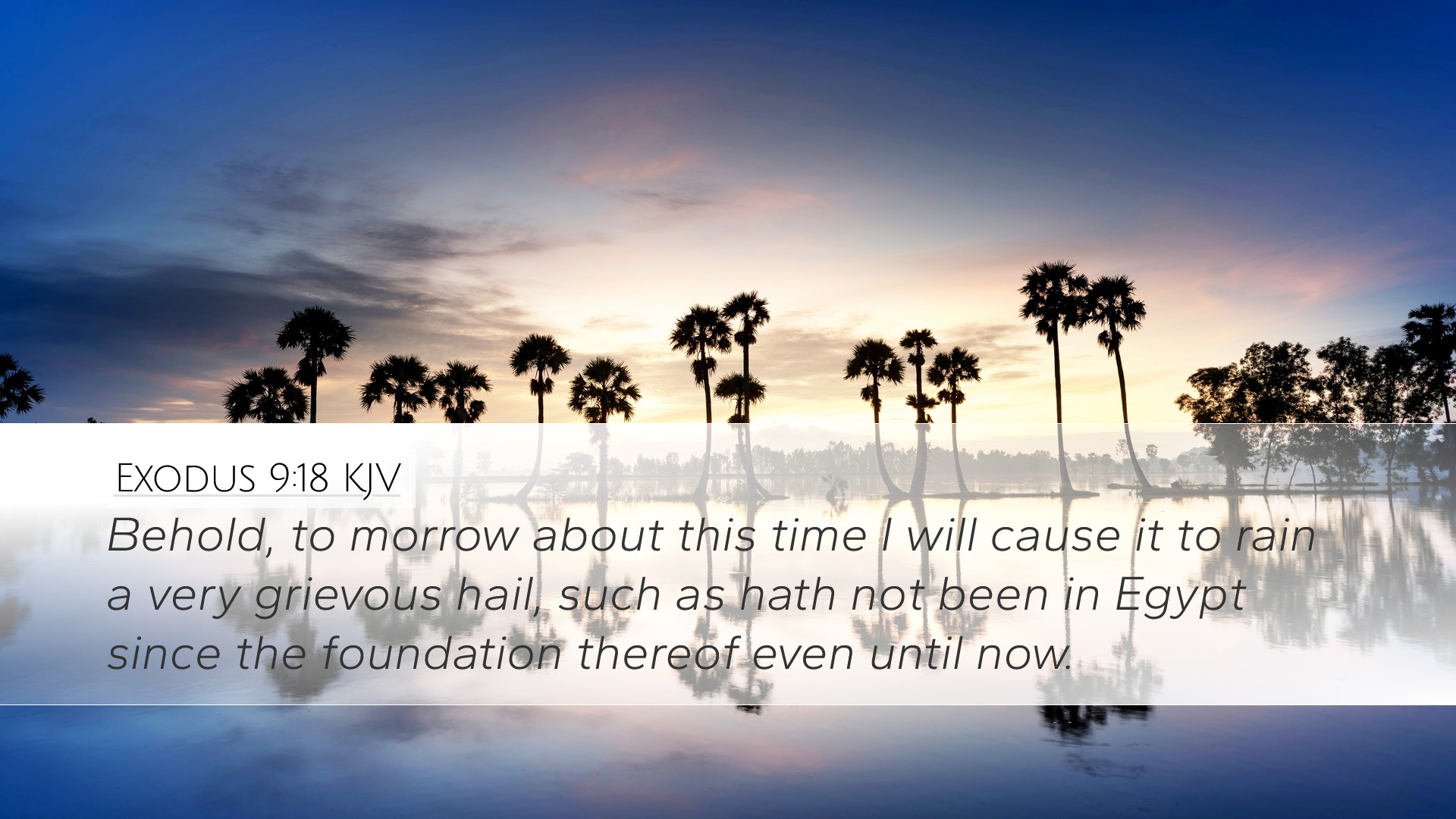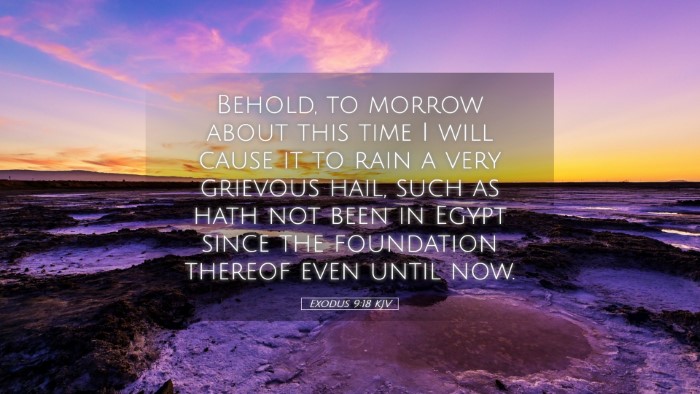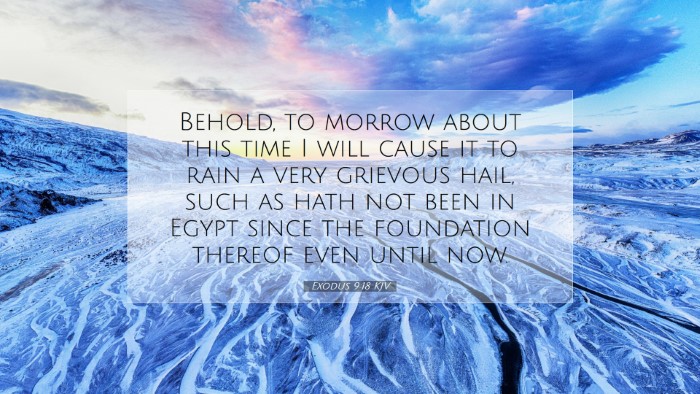Bible Commentary on Exodus 9:18
Exodus 9:18 (KJV): "Behold, tomorrow about this time I will cause it to rain a very grievous hail, such as hath not been in Egypt since the foundation thereof even until now."
Introduction
This verse serves as a significant moment within the plagues of Egypt, illustrating God's judgment upon Pharaoh and the Egyptians. It not only reveals the seriousness of God’s dealings with stubbornness and rebellion but also showcases the sovereignty of God in executing His will.
Contextual Background
The context surrounding the plague of hail is critical for understanding the message God intends to convey. Leading up to this verse, several plagues had already been unleashed upon Egypt, each serving to demonstrate God’s power and authority over the gods of Egypt, while also serving as a warning to Pharaoh to release the Israelites from bondage.
Theological Insights
As we delve deeper into the layers of meaning embedded in Exodus 9:18, we observe several theological dimensions.
1. Divine Judgment
Albert Barnes highlights the theme of divine judgment that permeates this passage. The phrase "very grievous hail" indicates the severity of this impending punishment. This judgment is not arbitrary but a response to Pharaoh’s hardened heart and continual refusal to heed God's commands.
2. Sovereignty of God
Matthew Henry emphasizes the absolute sovereignty of God in this proclamation. The statement "I will cause it to rain" underscores that it is God who controls nature; no natural disaster occurs without His express will. This serves as a reminder to believers that God orchestrates the events of the world, including the very elements that He created.
3. Forewarning and Mercy
Adam Clarke points out that the forewarning given to Pharaoh demonstrates God's mercy amidst judgment. By informing him of the impending hailstorm, God provides an opportunity for repentance and action. There remains a glimmer of hope, as Pharaoh could choose to heed the warning and protect his people and properties.
Practical Applications
For pastors and theologians, the implications of this verse extend beyond its historical context and invite reflection on modern-day applications:
- Response to God's Warnings: Just as Pharaoh was given a warning, today believers should remain attentive to God's voice and respond to His leading.
- The Nature of Hardness of Heart: Consider the danger of a hardened heart, as seen in Pharaoh's repeated defiance, which serves as a caution for all believers regarding the importance of humility and receptivity to God.
- God’s Sovereignty in Our Lives: This passage reinforces the belief that God is in control. In times of trouble or uncertainty, believers can rest assured in God's sovereignty, knowing that He is working out His divine purposes.
Conclusion
Exodus 9:18 stands as a pivotal verse within the narrative of the plagues, encapsulating themes of divine judgment, mercy, and the utter sovereignty of God. As pastors, students, theologians, and scholars engage with this text, it serves as an opportunity to reflect on God's character and the seriousness of human rebellion against Him. Understanding these messages can profoundly influence the life and ministry of those who strive to live according to God’s Word.


